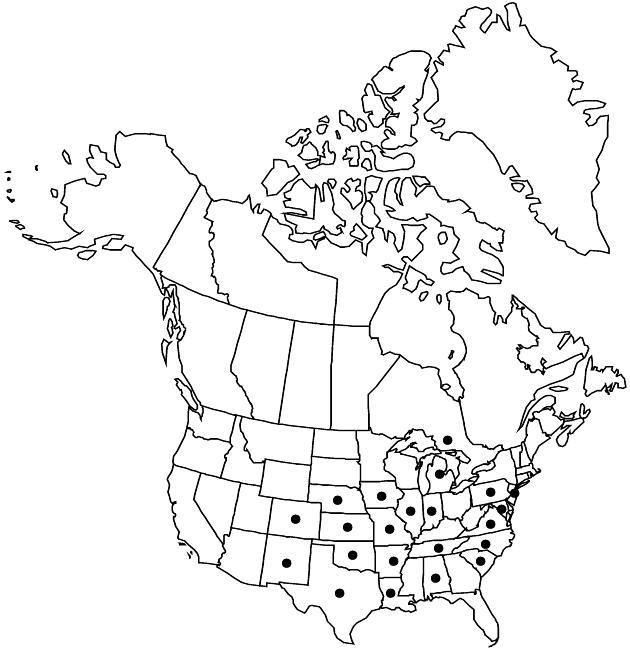Bidens polylepis
Proc. Biol. Soc. Wash. 35: 78. 1922.
Annuals (biennials), 30–100+ cm. Leaves: petioles 5–30 mm; blades ± deltate to ovate overall, 40–80 (–150+) × 25–50 (–80+) mm, usually laciniately 1-pinnatisect, ultimate lobes 3 (–7), lanceolate to linear, 25–60 (–120+) × (3–) 6–20 (–25) mm, bases cuneate, ultimate margins incised, dentate, or serrate, ciliate, apices acute to attenuate, faces glabrous or hirtellous to scabrellous. Heads borne singly or in 2s or 3s or in open, ± corymbiform arrays. Peduncles 10–20 (–50) mm. Calyculi of 12–21+ spreading to reflexed, linear, seldom foliaceous bractlets (6–) 8–12 (–20+) mm, margins coarsely ciliate, abaxial faces glabrous or scabrellous. Involucres turbinate to hemispheric, 4–5 × 6–10 mm. Phyllaries 6–8+, lanceovate to lanceolate, 4–7 mm. Ray-florets 8; laminae golden yellow, 10–25+ mm. Disc-florets (40–) 60–100+; corollas yellow, 2.5–3 mm. Cypselae blackish or brown to yellowish, ± flattened, obovate or oblanceolate to cuneate, outer 5–7 mm, inner 7–8 mm (lengths mostly 1.5–2.5 widths), margins (± corky-winged) antrorsely barbed or ciliate, apices ± truncate, faces glabrous or strigillose, sometimes tuberculate; pappi 0, or of 2 divergent, retrorsely barbed awns or ± deltate scales 0.1–0.5 (–1.5) mm. 2n = 24.
Phenology: Flowering Aug–Oct.
Habitat: Marshes, bogs, flood plains, disturbed sites
Elevation: 10–1500 m
Distribution

Ont., Ala., Ark., Colo., Ill., Ind., Iowa, Kans., La., Md., Mich., Mo., Nebr., N.J., N.Mex., N.C., Okla., Pa., S.C., Tenn., Tex., Va.
Discussion
Selected References
None.